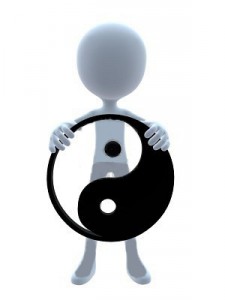T o many of you it may sound like I am completely against allopathic medicine…well, not completely. Allopathic doctors have saved many lives, especially when it comes to acute injuries like car accidents, burns, broken bones, heat exhaustion, frostbite, etc. In these instances, allopathic medicine certainly has earned its rightful place. Although I have strong opinions regarding the modern medical model:- in particular its underlying financial motives, I’d like to acknowledge the many dedicated doctors, nurses, technicians, and emergency personnel who are true healers working within an established system that is entrenched in a not altogether healthy financial “feedback loop.”
o many of you it may sound like I am completely against allopathic medicine…well, not completely. Allopathic doctors have saved many lives, especially when it comes to acute injuries like car accidents, burns, broken bones, heat exhaustion, frostbite, etc. In these instances, allopathic medicine certainly has earned its rightful place. Although I have strong opinions regarding the modern medical model:- in particular its underlying financial motives, I’d like to acknowledge the many dedicated doctors, nurses, technicians, and emergency personnel who are true healers working within an established system that is entrenched in a not altogether healthy financial “feedback loop.”
I sat at a day hospital with my husband just today to have a meibomian cyst removed from his left eyelid. The dedication with which the staff did their job was not lost on me and I applaud them for that. However, no matter how small, anyone who ever had a surgical procedure knows that it comes with a hefty price tag.
In addition, within this week, a friend of mine developed preeclampsia late in her pregnancy and was admitted to hospital. Although I have not spoken to her about her experience in the hospital, I am sure that it was as pleasant as her condition allowed it to be. Due to her alarmingly high blood pressure, she had to be monitored closely throughout the delivery. In this instance, peace of mind cost a pretty penny, but both mother and baby are doing well, so again I salute modern medicine.
Allopathic medicine = Symptom/Disease management
Other than the financial motives my biggest objection is that the allopathic medical philosophy taught at most medical schools, and practiced by the majority of medical doctors, relies on the concept of identifying diseases or symptoms, and then prescribing drugs to manage or combat those conditions. It is a system that considers the disease or symptom to be the actual problem, as opposed to addressing the underlying causes that produced the disease or symptom in the first place. Since the allopathic medical model is not concerned with getting to the root cause of the symptom or disease, it is a highly profitable enterprise, since patients keep returning. The long-term use of drugs ensures that people never regain full health, and slowly deteriorate due to poor immune function and the side effects of the drugs. As I have mentioned before, in the event of an acute injury, the temporary intervention of allopathic medicine may be required and may even be necessary for the body to be stabilized. However, long-term use of drugs for chronic diseases (heart disease, cancer, high blood pressure, asthma, etc.) only manages symptoms, doesn’t address the root cause(s), and usually toxifies the body. Let’s not forget that the toxic effects of medical drugs kill over 100,000 people a year in America alone.
Natural medicine cures
Most of us are taught that we need to go to medical doctors when we get sick. What we have forgotten is that the real doctor is already within us as the innate wisdom of the body. This is the difference between conventional allopathic systems and natural holistic medicine systems. The philosophy of natural medicine is that, given the right conditions, the body will heal itself. Whereas the allopathic model tries to control defective body systems through drug intervention, or kill foreign invaders with antibiotics.
The philosophy of natural medicine is that a weakened immune system is a reason foreign invaders can thrive and cause symptoms and disease. In natural medicine, prevention is always considered the first priority. Therefore, much attention is placed on educating the patient about proper diet and other lifestyle choices that affect health.
Prevention is better than cure and it’s cheaper
Most symptoms and diseases are preventable. It does depend on how we take care of our bodies and their innate ability to heal themselves. If disease does occur, then using remedies that work in harmony with the body—to rebuild and strengthen, particularly the immune system and organs, are used.
If it is one thing I learned from my battle with sarcoidosis, there are no drugs, no diets, no herbs or therapies that can cure you. It is up to the innate ability of your own body to heal you. That however does not mean that we cannot help to support it, while it is doing so.

Recent Comments